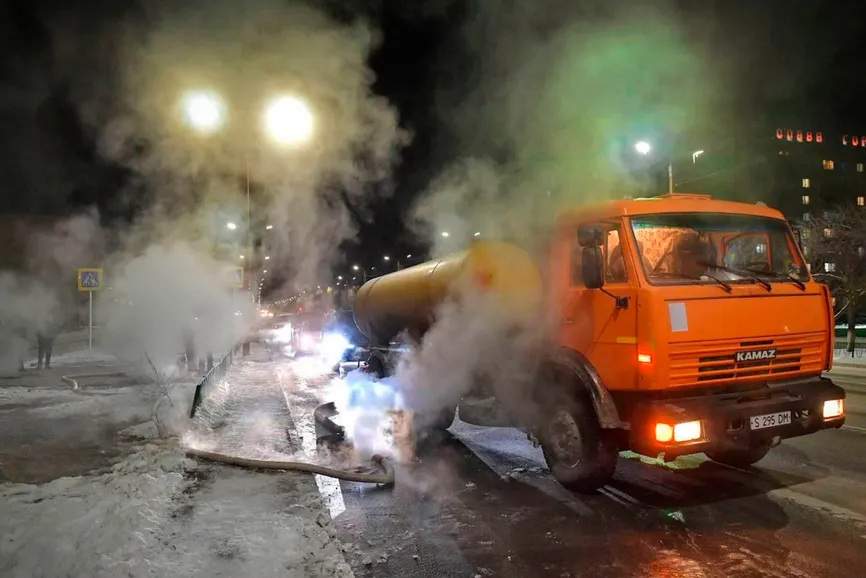The accident that left a city without heat in minus 30 degree weather began on the night of November 27 in Ekibastuz, a small coal-mining city in northeastern Kazakhstan. The power station that supplies central heating crashed due to outdated boilers, leaving about a tenth of a population of 150 thousand freezing for nearly two weeks.
On the morning of December 7, first deputy prime minister Roman Sklyar announced that the thermal power plant is being fixed and heat has been supplied to all affected homes in the city. He thanked the residents for their patience and assured them that “the situation with the heat supply will be fully resolved in two or three days.”
While the authorities worked to turn the heat back on, volunteering communities from all parts of the country came together to send humanitarian aid which included more than 4,500 radiators, 400 blankets, and other necessary supplies to keep warm. Now that the smoke is clearing out, it is time to review how the story of Ekibastuz came to be.
What happened?
In the 1970s, Ekibastuz used to be the third-largest coal-mining center in the Soviet Union. Boasting the world’s tallest chimney stack, the relatively isolated settlement is mainly known for its regional power station that supplied power for export to European Russia and the Urals. The infrastructure remained as it is without any renovation since then.
Hours after the plant shutdown, Ekibastuz introduced a state of emergency on November 28. Out of the 689 multi-story buildings in Ekibastuz, 71 buildings had been cut off from the heat supply. An investigation into the accident was launched and specialists from Astana and three other cities were sent to help with the accident.
Prime Minister Alikhan Smailov ordered a full technical audit of the energy facilities in Kazakhstan's regions. The local authorities calculated the damage and promised compensation to the citizens. On November 30, Smailov made a visit to Ekibastuz, promising the public that “the perpetrators will be held accountable.”
The situation has been caused by high wear and tear on the heating networks, a lack of investment in modernization, and negligence on the part of the district heating management.
The heating units in the basements of all affected multi-story apartment buildings started working on December 5. By then, there were still about 1,200 apartments without heat. On the same day, Yuri Pavlenko, a member of the Antimonopoly Committee, who had warned about the probability of an accident at Ekibastuz CHP back in the summer, addressed President Tokayev, stating that the situation was changing for the worse.
As a response, today the Head of the state tasked the Government to carry out a thorough analysis of errors made in the preparation of Kazakh cities for the winter heating season. The Government has been instructed to take swift decisions with the aim of radically changing the current situation both in Ekibastuz and in other settlements.
The issues concerning the privatized energy assets and the responsibility of their owners is yet to be resolved. Currently, there are discussions about taking the power plant, which is a privatized asset, under state ownership.
